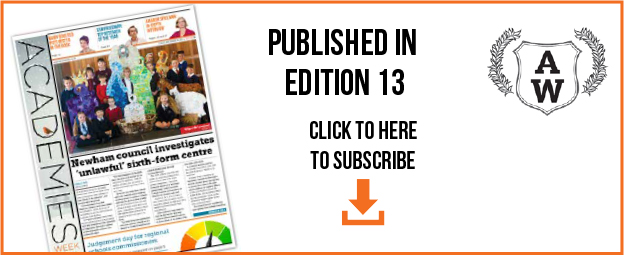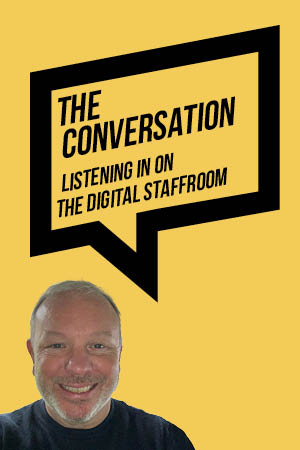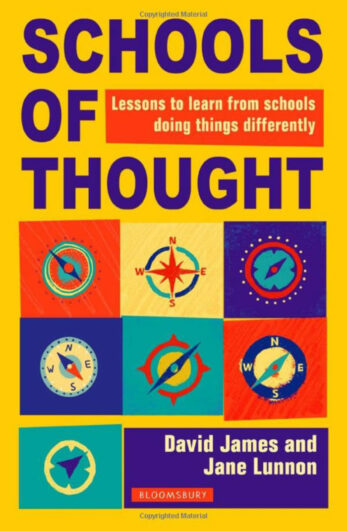Harry Fletcher-Wood picks…
Michael Fordham, clioetcetera.com
Michael Fordham’s blog has been consistently superb, offering robust and thought-provoking argument in elegant prose. I approach each post with anticipation and trepidation (many highlight traps that I’ve fallen into). His thinking is primarily about the discipline of history teaching: as such, some posts act as references (I often recommend his summary of the incoherence of levels) or stimuli to change (notably his suggested improvements to assessment). However, many posts are broadly applicable — like his argument that teacher-training should be chiefly subject-specific — or could be adapted to other disciplines, such as 20 ideas for worthwhile subject-specific CPD. He proposes (number 11): “Bring in a piece of extended source material. If you’re stuck for ideas then I’d particularly recommend the law code of Ine of Wessex. Do some ‘close reading’ of the source.” I recommend Michael’s writing because it has forced me to think in new ways and I hope others can benefit too.
John Tomsett, johntomsett.com
Good schools need enlightened leaders. John Tomsett’s meditative, honest, inspiring blog exemplifies this, blending reflection, forthrightness and humility in explaining what he does as a leader and why. A favourite example is his examination of Huntington School’s experience with interventions and the changes he introduced as a result.
He is not afraid to discuss political aspects of education: identifying ways he agreed with Michael Gove and exemplifying the problems with exam marking in striking ways. Some posts are more personal, memorably his renovation of a fishing rod and his evolving relationship with his son. He also writes about his efforts to improve his teaching and the school’s pursuit of excellence. John’s writing is always a pleasure; it offers a wealth of insight into teaching and leadership, and renews my faith in our schools’ futures.
Jill Berry picks…
I was struck recently by a Twitter debate about why, in a profession dominated by women, the world of educational Twitter and blogging is dominated by the voices of men. I have a number of thoughts
about why this might be, which I won’t go into here. But I do think that raising awareness and being mindful of opportunities to redress the balance a little might be helpful. So I’d like to use the chance I have here to celebrate strong female voices.
Sue Cowley, Suecowley.wordpress.com
Cowley (@Sue_Cowley) is an early years specialist, writer, trainer and parent whose blog posts don’t dodge controversy and who always manages to make me think. Cleverly, Sue often confines her posts to around 250/300 words, so they’re a quick read, but I find her ideas stay with me for some time afterwards. I admire anyone who can write so succinctly and yet so well. Recent posts I particularly enjoyed include one on rewards to pupils and on teacher creativity.
Debbie & Mel, Teachertweaks.wordpress.com
Debbie and Mel are two serving secondary teachers/leaders, whose posts are less frequent than Sue’s but equally powerful. See, for example, the post about life in an RI school and how this can present a challenge to keeping a clear focus on teaching and learning: the post about making the most of the pupil premium and the post based on their joint presentation at #TLT14 on good educational reads. Again, these posts are well-written, carefully considered, realistic but often uplifting – which is something I need from Twitter and blogs. I know the job is tough. I don’t need Twitter and blogs to constantly reinforce that for me.
I look forward to recommending many other strong female voices through my blogging column next year.
Emma Ann Hardy picks…
Miss Smith, Heymisssmith.blogspot.com
One of the main things that attract me to reading HMS is her honesty. In a world of increasing sycophancy, insincerity and a promotion of a narrative that at best can be described as misguided and at worst a blatant lie (especially in educational politics) HMS is an oasis of truth.
Yes, there are some that fall victim to HMS’s occasionally acerbic tongue but this is because her focus is always on the children that she teaches and what she knows to be the best way to educate them rather than pleasing advocates of the latest trend. Her satirical blogs are guaranteed to educate and inform — take note BBC. At times I find myself laughing behind my hand as I try to suppress giggles I know I shouldn’t have because she’s mocked either my beloved political party or prominent individuals from education. Her most recent example is The Policy Tombola where she invites politicians struggling to decide their educational policy to choose from her list… If you genuinely like children, think they should be taught in a way that develops all their talents and if you read the latest education initiatives with a reaction varying from disbelief, amusement to anger, then you will love HMS’s blog.
Martin Robinson,
Martinrobborobinson.wordpress.com
Reading Martin’s blog is a joy; he is a true wordsmith. In an educational and political world dominated by aggressive declarations and contempt for others’ opinions, it is refreshing to be lulled into a false sense of security before then being beautifully told that what you believed was wrong. It is difficult to pigeon-hole Martin’s writing
and assign him to one of the educational camps that are becoming so entrenched. That is part of his appeal, though don’t mistake this for his writing being uncontroversial. Reading his blogs cannot be rushed and is instead a leisurely task to be savoured as you are challenged to think about pedagogy and your opinions on political initiatives.
Andrew Old picks…
Thequirkyteacher.wordpress.com
I doubt any blog has had an impact like Quirky Teacher’s this year. Secondary teachers have long since become used to bloggers arguing extensively over almost every aspect of philosophy and practice, but there hasn’t been a similar online revolution in primary. Most primary blogs are about suggestions for teaching activities or about school leadership. So when a new primary teacher started an anonymous blog, which bluntly critiqued the nonsense and dogma they saw around them, there was an outcry. Some primary teachers declared: “no primary school is like this”. Others declared: “this teacher doesn’t understand why it’s good that our primary schools are like this”. But, amid the outrage, others expressed the opinion that this was a debate that was needed. Whether it’s seen as a provocation to primary teachers to reflect about what they do, or as an explanation to those in secondary as to why students often arrive without basic skills or expectations of behaviour, Quirky is a voice that should be listened to by all who care about the standards in primary schools and deserves a considered response rather than a chorus of denial.
Esse Quam Videri, Heatherfblog.wordpress.com
Heather is a teacher of history and politics at a private boarding school who also writes about her own children. Many of her posts are extended reflections on a single topic, like the best length for lessons or how technology has changed her teaching. She is particularly keen to reflect on the latest changes in the curriculum and assessment in her own subjects, often despairing at the vague criteria used in exam marks’ schemes or the lack of interest in students’ knowledge shown by some of those who write exam papers. At her most controversial, she discusses why she has been left to teach her own children so
much of what should have been taught
at school, particularly with regard to literacy and numeracy – and how she has done so.








Your thoughts